The Spectrum IFA Group recently announced its arrival in Malta, opening a branch in the St. Julian’s business district. It will be managed by Craig Welsh, who is a partner, and who has been with the group since 2006.
The Spectrum IFA opens it’s Malta office
By Craig Welsh
This article is published on: 28th September 2021
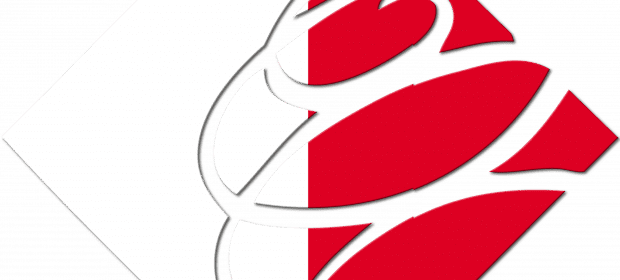
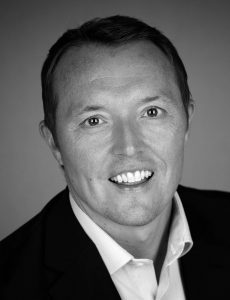
Craig will be assisting expats in Malta with their financial planning, particularly around lump sum investment opportunities, UK pension consolidation (where appropriate), Brexit issues, and general retirement planning.
Have a look at this short clip explaining a bit more about Spectrum and how they help their clients.
Tax & Pensions in Italy
By Gareth Horsfall
This article is published on: 27th September 2021

Well, another summer has passed and contrary to my previous article I have decided not to become a communist, not that I think there was ever any chance of it happening anyway. Being a financial adviser pretty much excluded me from the start.
Anyway, as the hot days roll on here in Rome and the fresher ones will start soon, I was thinking how I could get started on some more serious topics of finances for residents in Italy. One thing I have come up against this summer on a number of occasions has been the subject of personal private pensions, and how they are treated for taxation, so I thought it might be a good idea to explore the different types of personal pensions which are in existence in the EU, which type Italy uses and what we can learn to help us understand the taxation of such a financial product in Italy.

EET, ETT, or TTE?
This subject can get complex, but every so often it’s good to delve in and try to make some sense of it. The main problem is that throughout the world, and even between European states, different models of taxation are applied to the different models of personal private pensions that exist. Italy has adopted one of these models, which in itself is no problem, but when we, as foreigners, move to Italy we may find that our existing private pension plans don’t fit into the same model as the Italian one. In most cases our commercialista has the ‘enviable’ job of choosing how to apply the Italian way to our scheme. It’s a bit like trying to fit a square peg into a round hole.
So what are the main models? As the title of this paragraph alluded to, there are three main models used which go under the monikers: EET, ETT and TTE.
What do these stand for?
The initials mean the following:
EET: Exempt, exempt, taxation. (The majority of EU member states adopt this approach, including the UK)
ETT: Exempt, taxation, taxation. (Italy, Sweden and Denmark adopt this model)
TEE: Taxation, taxation, exempt. (This used by Hungary and Luxembourg)
**The US also falls in the EET system**
As you might have guessed, the ‘exempt’ and ‘taxation’ tags refer to the point at which taxation is applied to the monies in your private personal pension. So, the first tag refers to the point at which the contribution is made into the pension fund (monthly or lump sum payments are treated equally), the second tag refers to the money when it is invested and accumulating within the pension (capital gains and income generated from the invested funds) and the third is the point at which one goes into retirement and starts to receive payments from it (the actual pension payment). Clear as mud? Let’s continue…

The EET model
The UK, US and many other EU member states apply the EET model (exempt, exempt, taxation), and it is my favourite model! I think it is the easiest to understand and the fairest model. I also expect that this model may also be adopted (or phased in) by Italy as part of Mario Draghi’s big tax shake up, for which we are still waiting for details (end October is the latest news).
Fundamentally, a model which allows someone to accumulate funds in a tax efficient environment throughout their working life and then be taxed at normal tax rates when they eventually come to take that money back, would seem to be the easiest and fairest way to allow individuals to accumulate as quickly and efficiently as possible. It also incentivises people to want to make more contributions into these types of savings plans for their future.
The ETT model
However, our beloved country of residence, Italy, adopts the ETT (exempt, taxation, taxation) model. Interestingly, the other two countries which adopt this model in Europe are Sweden and Denmark. I don’t think I need to point out the significant difference between the social security systems of Denmark and Sweden versus Italy, but it merely highlights the fact that Italy remains a higher taxing EU state. That being said, I love Italy, as I know a lot of you do, and it deserves much more than an critical look at its taxation system. The fact that the fund is taxed in addition to the pension payments on retirement means that their model doesn’t complement sufficiently the lower benefit payments on offer from the state through the contributi scheme, previdenza complementare’ and is not a great attraction for savers for retirement. However, you need not take my word for it. Between Italian workers, private individuals and public scheme employees, only 25% contribute to a separate private pension scheme to top up their existing benefits from the state. That figure is well below the EU average!
That low number might be due to the fact that between the low tax benefit (a maximum deduction against tax of only €5164.57 per annum), the rates of tax applied to the fund itself (between 20% and 26% depending on which fund you hold your private pension with), the restrictive ranges of investment options and the higher charges, then it comes as no surprise that not enough people are choosing to top up their pension with a private arrangement, but are more likely to buy property or find other ways of supplementing their retirement income, assuming they have surplus income after the state has taken their contribution for the state related pension.
There is, however, one advantage. The monies when received as an income payment in retirement attract a tax rate of 15% and can fall to 9% if you have contributed for 35 years to a previdenza complementare. This additional benefit stills fails to be attractive enough for people to save in this way for their future, probably because the benefit is too far in the future for many people to even consider when they have more pressing financial needs today, which brings us back to the point that the incentive for people to save today needs to correspond to a benefit received today i.e. a tax break on contributions, or no tax on the invested fund.

So what does this mean for the taxation of your non-Italian pension
As you might imagine it’s not as simple as saying that a personal pension that you own from one country will be considered the same, for tax purposes, as an Italian private pension (previdenza complementare).
The complexity lies in the fact that because Italy cannot analyse every different type of pension in the world, it is impossible for them to legislate for each one as well. Therefore, we have to use some logical thinking, but even that may be interpreted differently by the tax authorities in Italy.
At this point you might want to take a moment’s silence for your commercialista whose job it is to make that interpretation and on whose shoulders, ultimately, that decision lands. Although it is unfair to say that they don’t have any information to hand, because one client, whose commercialista was clearly on the ball, alerted her to an ‘Istanza di Interpello’ dated 27th May 2020, (click HERE, basically it is an opinion provided by the Agenzia delle Entrate on a specific case presented by a specific individual). This interpello went some way to explaining the thinking of the Agenzia behind the taxation of pensions which fall into the EET model (exempt, exempt, taxation). The ‘opinion’ was based on a UK pension.
Taxation on accumulation or not?
What it all seems to boil down to is how the pension is taxed during the accumulation phase. Italy taxes the fund during this phase but gives a preferential tax rate when the monies are drawdown. A UK pension, for example, is not taxed during the accumulation phase, but then drawdowns are taxed at regular income tax rates. So, going back to the logical thinking approach, if someone moves to Italy with a UK pension, it doesn’t make sense that they would benefit from tax efficient growth in the fund AND be provided with a preferential tax rate on drawdown. That would constitute a double tax benefit, which I doubt the tax authorities would approve of.
It doesn’t matter what you or I think!
The interesting point here is that even with all this information and supposition, the reality is that your commercialista can still choose to apply any method of taxation that falls in any of the different models because the legislation doesn’t exist to do otherwise. Therefore, the best you can do is to take a guess.
Attention, however, because the Interpello from 27th May 2020 gives a pretty good outline into the thinking of the Agenzia regarding the EET model, in that when payments are taken they should be taxed at income tax rates, not the 15% preferential tax rate. If you are advised to, or you choose to apply the 15% preferential tax model, there is always the chance that the Ageniza could come looking at some point in the future. It’s highly unlikely given the circumstances, (in my opinion), but not beyond imagination.
Given the complexity around pensions it comes as no surprise that it is often easier to bury one’s head in the sand rather than checking exactly what you have and how it should be declared. If you have any doubts then you can always contact me for a free no-obligation analysis of your situation. It is a part of the overall service package that I provide to clients and others looking to regularise their pensions arrangements in Italy. For clients, I also liaise with their commercialista directly to clarify their current choices and determine if anything should be done differently.
Qualifying Recognised Overseas
Pension Scheme
Staying on the subject of pensions
For anyone who is intending on living away from the UK permanently, we have over recent years been helping clients review existing UK private pension arrangements to determine whether a QROPS transfer may be appropriate. This is a type of overseas pension, which operates like a UK private pension plan, is always domiciled in Europe for EU resident individuals and is operated under an EU framework of compliance and oversight.
Since the UK’s exit from the EU we have been wondering whether the UK would stop the possibility to move pension monies from the UK into the EU to slow money flows out of the country, out of spite or any other number of reasons relating to the future relationship with the EU. To date this has not happened, but could be announced in any UK budget. (the next budget has been announced for the 27th October 2021).
There are potential tax consequences of having a UK pension plan which is now no longer ‘harmonised’ with EU legislation and there could be adverse tax consequences in the future. In addition, moving pensions to QROPS is considered removing a tie to the UK for anyone looking to remove UK domicile for inheritance tax purposes. Therefore, if you have a private personal pension arrangement that you are waiting to receive benefits from and /or drawing down from, I can offer a free analysis of the benefits of transferring it away from the UK.
Superbonus 110% – discussions on the beach
There is a lot of discussion going around at the moment about the Superbonus 110% that the Italian government is offering to bring your property into the eco-friendly age. I won’t go into details because it’s so complex that I am totally lost with the whole affair. However, I did happen to have some discussions on the beach this summer with an Italian gentleman of 73 years of age. He is a practising architect in Milan and has built buildings all over Italy. I struck up a conversation on the subject of the 110% Superbonus and how his company was coping with the bureaucracy. I was a bit taken aback by his answer that they had made a decision not get involved, at all.
His view was that the process of attaining permissions and subsequent documenting of the process is so incredibly complex and time consuming that the professionals involved in the process are forced to increase their fees substantially just to cover the cost of work and /or monitoring and reporting. He also explained that because ultimate responsibility for the Superbonus 110% will fall on the shoulders of the professional following the process, that their insurance risk against the Agenzia delle Entrate poking around in the future, and finding faults in the documentation is so high that they would have to increase their fees substantially to compensate for that risk.
This architect said that he had been talking to other firms in Milan who were charging significant fees, and that in total, between architects, geometre, and builders, costs could spiral to 40% of the amount claimed for the work.
Now, I am no expert on this particular area and I am sure that there are some of you reading this who will be able to pull this logic apart, but my point is that if you are looking at significant renovation work through the use of the Superbonus 110%, then make sure you check the small print and the costs. Remember that in addition to the costs of following the work, building material prices have sky rocketed due to Covid and continue to rise. What is claimed from the Agenzia delle Entrate may be less than the cost of work if these costs continue to rise.
Ultimately, it is the client who pays the fees and so my advice is just check that the NET amounts claimed from the Agenzia delle Entrate will cover the cost of your work and you are not going to be left with half finished properties.
And on that happy note, I will leave it for this E-zine. Life is slowly returning to normal after the long hot summer and it will shortly be time to be putting on those thick woolly socks again and wrapping up tight for the winter. In the meantime, if anything in this E-zine has piqued your interest, or you would just like to review your financial plans for life in Italy then please do get in touch on gareth.horsfall@spectrum-ifa.com or send me a message/call on +39 333 649 2356
UK pensions and tax treatment in France
By Andrea Glover
This article is published on: 13th September 2021


I have had several queries over the last few months about the tax treatment of UK pensions in France, whether they are being received as a regular income or where clients have or are about to take a one-off lump sum to pay for a large purchase. Many of the queries were relating to the completion of French tax returns, but we are also seeing a large number of queries where advice is being sought on French tax treatment of pensions prior to a move to France.
So, in this article, I am going to go back to the basics and go through the different types of UK pension scheme and their tax treatment in France for French tax residents.
UK State Pension
As a French resident, the UK State Pension is taxable in France (not the UK) and where an S1 is held, no French social charges are payable. It is important to note that the UK State Pension can be paid directly into a French bank account, in euros, although the amount will obviously fluctuate due to exchange rates.
Government pensions
UK government pensions are dealt with under the UK/France double tax treaty and apply to those who have previously worked in the Armed Forces, Civil Service, Fire Service, Local Authority, NHS (with exceptions), Police and Teaching amongst others. A full list is available at www.gov.uk/hmrc-internal-manuals/international-manual/intm343040 to help you identify if your pension is classified as ‘government’.
Under the double tax treaty, UK government pensions are taxed at source in the UK. The pension income still has to be declared in your French tax return, but a 100% tax credit is given so that the same tax is not paid twice. It is important to note, that such pension payments are taken into account to calculate your overall income and could have the effect of increasing the rate at which other sources of income are taxed.
Qualifying government pensions are exempt from social charges.
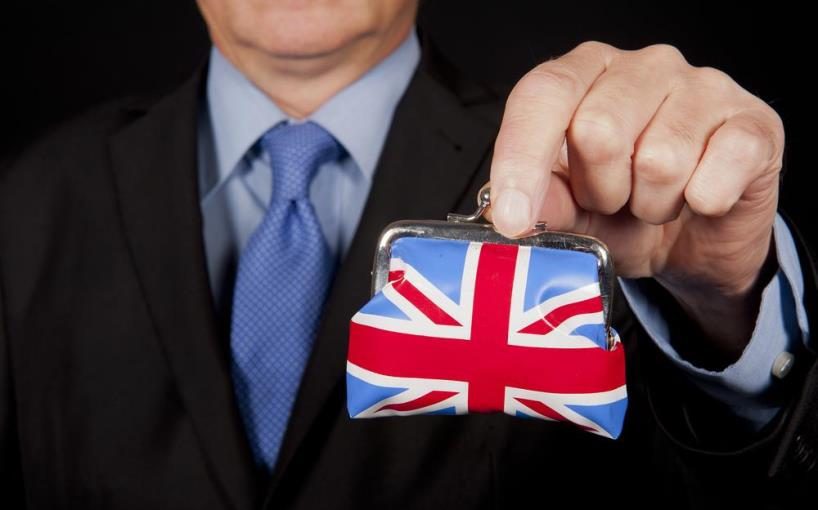
Private pensions (occupational, stakeholder, SIPP)
Pension payments received from UK private pensions are taxable in France (not the UK) if you are French resident and again, where an S1 is held, the payments are exempt from social charges.
Annuities
Annuities are more complex and advice needs to be sought to establish the type of annuity held, as annuities can be interpreted as investment income in France rather than pension income.
Allowances
Amongst other allowances relating to pension income, there is a general 10% tax abatement on pension income (with the exception of qualifying UK government pensions) with a minimum of €394 and a ceiling of €3,858 (applicable to 2020 tax returns and subject to change). The allowance is per taxpayer, although the ceiling stated is per fiscal household.
The allowance only relates to tax and not social charges, where applicable.
Lump Sums
Lump sum pension payments are an area for discussion in another article. Other than qualifying UK government pension lump sums, such payments (including UK tax free lump sums) are taxable in France.
I would always strongly recommend that you speak to a France based qualified adviser, familiar with UK pensions, before any firm decision is made to take a lump sum payment.
Understanding inflation
By Occitanie
This article is published on: 6th September 2021
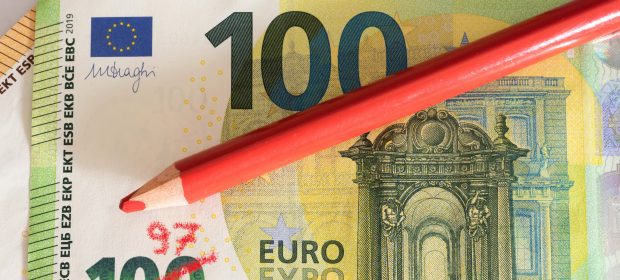
Following the summer break, welcome to the latest edition of our newsletter “Spectrum in Occitanie, Finance in Focus” brought to you by your Occitanie team of advisers Philip Oxley, Sue Regan, Derek Winsland, together with Rob Hesketh now consulting from the UK.
Following our last newsletter on the subject of inheritance planning, we thought we would turn our attention to the significant column inches in the financial press currently devoted to the growing risks of inflation.
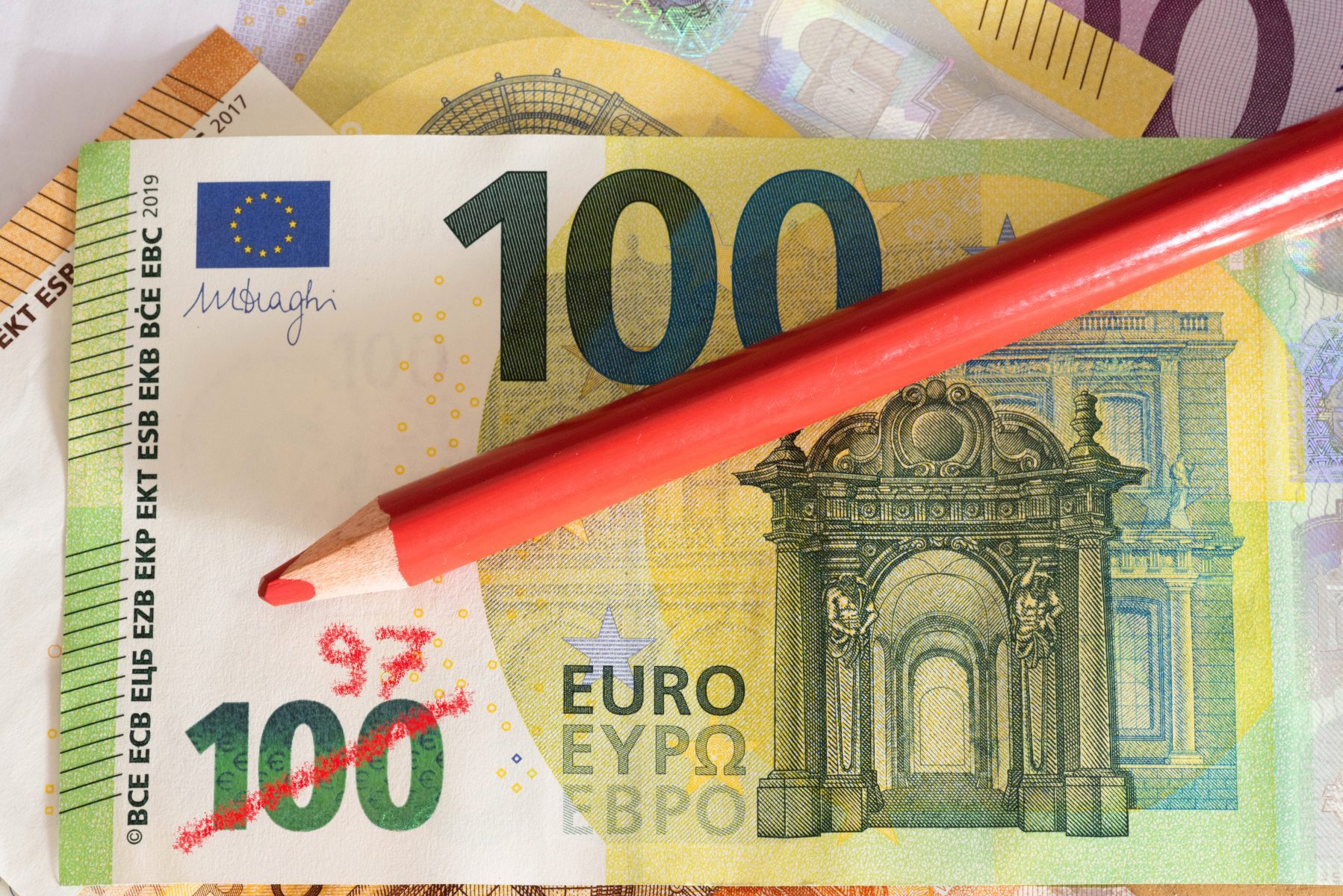
What is inflation?
Inflation is essentially the decrease in the purchasing power of your money as a consequence of a sustained increase in the price of goods and services. Therefore, in an environment of rising inflation, unless your income increases at a similar level you may not be able to maintain the same standard of living.
Inflation is typically measured using a wide variety of items that many people would typically purchase. For example, the Office for National Statistics (ONS) is continually monitoring the price of about 600 goods from around the UK. These monitored price increases are weighted based on popularity and value. Also, the items measured are under constant review with hand sanitiser having been added since the onset of the pandemic.
What is happening to inflation now?
Inflation has been rising at a pace in recent months and this level of higher inflation is predicted to remain in the short term, and possibly the medium term. In France, the UK and the US, inflation increases since the beginning of the year can be seen below:
| January 2021 | July 2021 | |
| France | 0.6% | 1.2% |
| UK | 0.7% | 2% |
| USA | 1.4% | 5.4% |
What causes inflation?
There are several economic theories behind the causes of inflation, the primary ones being the following:
i) Demand Pull: This occurs where demand for goods and services outpaces supply and consumers are prepared to pay more for some items. This scenario is often experienced in circumstances where an expansionary economic policy is present – often evident where there are low interest rates, which encourages borrowing, or recent tax cuts resulting in additional funds in the pockets of consumers.
ii) Cost Push: Often caused by a shortage of supply and/or increases in the costs of production, such as the price of raw materials or increased labour costs which are passed onto the consumer by way of higher prices. A simple example of this is when the price of crude oil increases, this is passed onto consumers at the pumps in the form of higher petrol and diesel prices.
For many businesses, labour costs are a large component of their cost base. When the economy is growing strongly and unemployment is low, labour shortages can arise and companies may be prepared to pay more to secure skilled, well-qualified employees. These costs can also be passed onto the consumer in the form of higher prices.
iii) Increase in the Money Supply: I am sure some of you will remember the 1980’s, a time during which Mrs Thatcher dominated the political scene in the UK and a bedrock of her economic principles was monetarism (the theory or practice of controlling the supply of money as the chief method of stabilising the economy). This economic theory was underpinned by the principle that excessive growth in the supply of money was the primary cause of inflation. In more recent times, Quantitative Easing (QE) has been a policy employed by central banks to stimulate the economy, firstly following the 2008-9 financial crisis and again since the onset of the Coronavirus pandemic. This policy involves central banks purchasing government bonds and other financial assets which injects large amounts of money into the economy to stimulate growth and this could certainly be one of the factors behind increasing inflation rates this year.

Why does inflation matter?
If you know anyone who lived in Zimbabwe in the years 2007-2009, they will tell you why. Inflation peaked at close to 80,000,000,000% meaning prices were doubling every day and there were scenes in the news of people using wheelbarrows to carry their money around! The central bank published bank notes of ever-increasing value and at one stage it was reported that a loaf of bread cost the equivalent of $35million!
A colleague of ours who is based in Italy, professes to have a 100 trillion dollar note issued by the Reserve Bank of Zimbabwe in his office.
Of course, this is an extreme example (although not unique), but there are multiple reasons why governments and central banks become a little jittery when inflation starts to increase beyond their targets, not least because of inflation’s tendency to be self-perpetuating. For example, inflation is increasing therefore workers demand higher pay increases. Higher pay increases lead to businesses clawing back these extra wage costs in the form of higher prices for their goods/services. Consumers notice that prices are rising and demand higher pay increases and so on. This is a little simplistic, but hopefully illustrates the point.
In the past, governments and central banks (often through interest rate increases) have acted quickly and decisively to try and control this inflationary process. Currently however, governments and central banks seem a little more relaxed about the matter – at least in the short term. One of the many reasons for this is down to the pandemic-ravaged economies around the world which are recovering, but still fragile..
How long will this period of higher inflation last?
This is a difficult one to answer.
Here is what two of our investment partners say on the matter:
“We do not agree with theories of runaway inflation, currently a hot topic among market commentators. To summarise briefly, the main reason for the spikes we are seeing today is that prices were abnormally low a year ago, and the rate at which they have risen since has been exacerbated by COVID-related dislocations in spending, employment, production and logistics. We believe – as US Federal Reserve Chairman Jerome Powell has been at pains to note – that unusually high US inflation will be transitory. But it’s worth clarifying what we mean by transitory. We don’t mean that inflation will be back on target by year end. Instead, we see it peaking in the next month or two, before falling back toward 2% throughout 2022.” Julian Chillingworth, Chief Investment Officer, Rathbones – 7th July 2021.
“Lower for longer’ was a term used to describe the post-credit crunch interest rate environment, a period in which interest rates languished near 0%. The promise of rates being lifted as the global economy strengthened never really materialised: rates stayed lower for much longer than originally planned – a decade – and then came Coronavirus. We’re now seeing a similar story take shape, this time on the subject of inflation. The Central Banks reiterate that accelerating inflation is ‘transitory’ and not a cause for concern, but it’s the Manager’s advice that investors prepare themselves for a different truth entirely: inflation is going to be higher for longer.” VAM Funds, Monthly Market Outlook – July 2021.
And from other sources:
“Higher Inflation Is Here to Stay for Years, Economists Forecast.” The Wall Street Journal, Headline on 11th July 2021.
“The ‘inflation is transitory’ argument is starting to wobble…the debate about temporary or problematic inflation will continue for months and will grow more heated.” Greg McBride, Chief Financial Analyst at Bankrate.com
Is it possible to protect your savings from the impact of inflation?
Yes – to some extent.
If you chose to keep all your savings in bank accounts in the UK, France or elsewhere the chances are that any interest you will receive will be a very small fraction of 1%.
If your cash is in a French bank account, balances up to €100,000 per person, per banking group (€200,000 for joint accounts) are protected. In the UK, cash deposits are protected to a limit of £85,000 per person, per banking group (£170,000 for joint accounts).
These guarantees undoubtedly provide some comfort in relation to the security of your funds, but over time the effective value of your savings will diminish, and this will occur more rapidly in a higher inflationary environment.
For example, if inflation were to average 2.5% for the next 10 years, £100,000 of savings today, would be worth only £78,120 in today’s terms, in 2031. To consider this in a different way, for £100,000 to keep pace with inflation, in 10 years’ time it needs to have grown in value to £128,008. This erosion of value is even more marked over longer timescales.
The simple truth is that there is no certain way of keeping up with or indeed beating inflation, without accepting a degree of risk. Thus, we have a choice, leave our savings in a bank account, and accept the certainty that inflation will erode our wealth if we don’t do something about it, or talk to someone who has the expertise to invest money in a manner that will give the possibility of a positive return within the parameters of your personal objectives and appetite for risk.
It is advisable to hold at least six months of your average monthly outgoings as a contingency fund for unexpected needs. With bank interest rates and inflation at their current levels, it makes sense to look at alternative homes for the excess cash over and above your ‘emergency fund’.
As most readers will know we at Spectrum are big advocators of diversification and the multi-asset approach to investing. We place our trust in our preferred investment partners to look after our clients’ money to help them achieve their financial objectives. Their investment teams are constantly monitoring the global economic, environmental, and political factors that may affect portfolios and act accordingly to produce the best outcomes for clients.
Whether you are a cautious investor or an adventurous investor, or somewhere in between, we are here to discuss the most appropriate investment solution for you. So, if you would like a review of your situation, please don’t hesitate to give us a call.
What next?
If you would like to discuss anything we have covered in this month’s newsletter, please do get in touch at Occitanie@spectrum-ifa.com or contact your Spectrum adviser directly.
We would love to hear from you with any comments and/or questions, as well as suggestions as to future topics for discussion. Finally, please feel free to pass this on to any friends or contacts who you think might find it interesting.
UK tax rebates in Spain
By Chris Burke
This article is published on: 1st September 2021
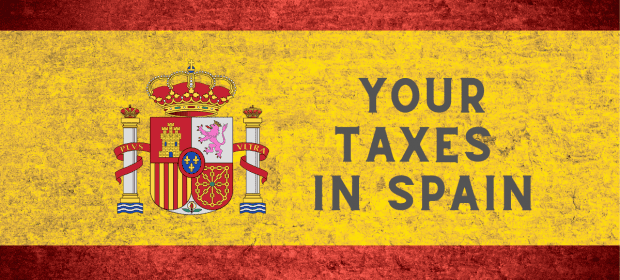
The TT – Top Tips Newsletter
Hi everyone, I hope you are enjoying some well needed freedom and a good summer. This month’s TT covers the following Hot Topics:
- UK passports – VERY important news on travelling to Europe
- UK tax rebates for those moving abroad
- New working/retirement rules in Spain
UK passports
The first news out this year, importantly for those travelling to and from Europe, was that you must have 6 months left on your UK passport to enter the country now that the UK has left the EU; this applies even if you are a resident. Those travelling may have noticed that as well as joining the ‘Non-EU passport queue’, your passport will more than likely have been stamped. The UK has issued a statement saying that if you present your TIE resident card at passport control, they will not need to stamp your passport. In my experience this is not the case so far, even though I have given them my TIE as well. This might be an issue for those people who travel regularly, as once your passport stamp pages are full a passport is not usable. You would then need to apply for a new passport on the basis of ‘exhaustion of pages’. What’s more is that some countries will not allow entry without two blank passport stamp pages. If you are renewing your passport, it might be worth requesting the larger version with more pages to cover for this eventuality. Which leads me nicely onto my next topic.
UK red passport expiry date
Those who have not renewed their UK passport in the last year probably will have the old red colour passport. An important announcement was made recently in respect of these and is as such: these passports are ONLY valid for 10 years exactly. What this means is, if when you last renewed your passport and had months added that were still valid from the previous passport, these do not count anymore. Thus, these passports are only valid from 10 years from their date of ISSUE.
This will not affect everyone, but for example, if your current red passport was issued in January 2012, but expires in May 2022, because there were 4 months remaining on the previous passport which were added to the new one, you will be affected. In this instance, Europe/Spain will have this passport expiring in January 2022 and to enter you must have 6 months remaining to this date.
It’s good to have things like this to worry about, because there just isn’t enough in life is there?!
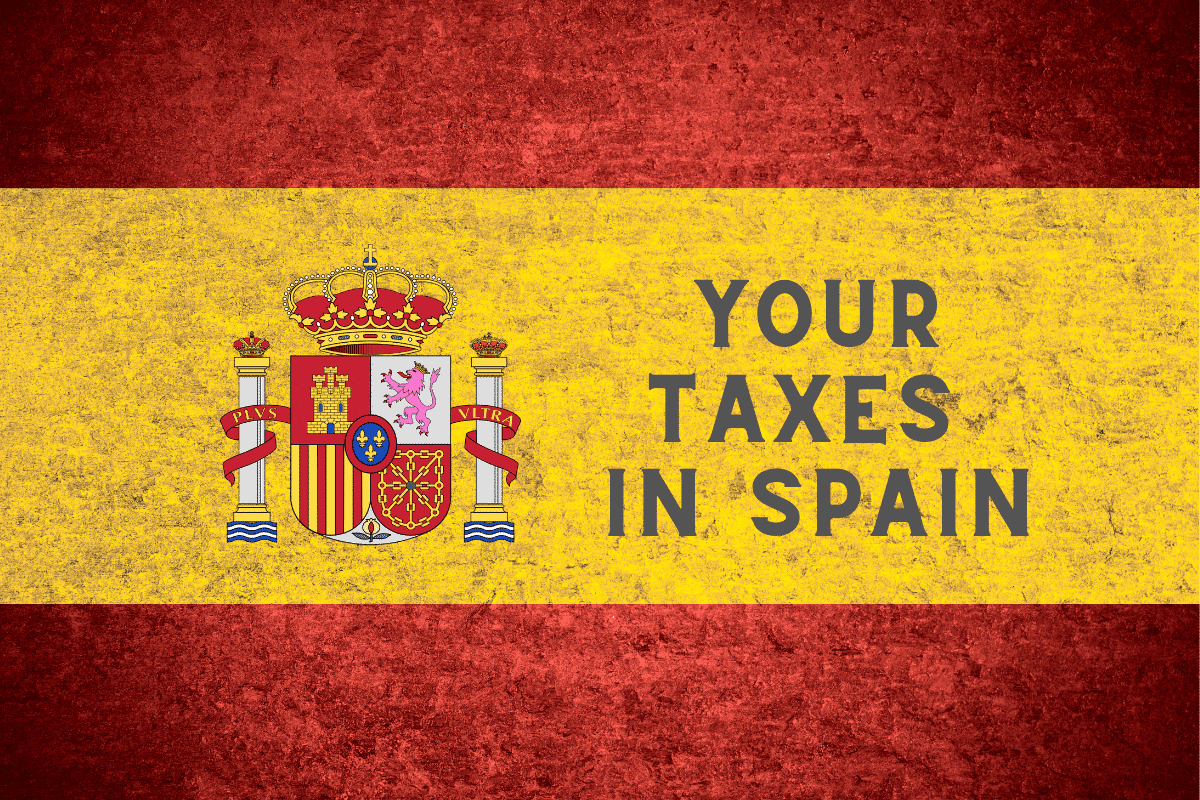
UK tax rebate for those moving abroad
Anyone who has left the UK in the last four tax years is allowed to apply for a UK tax rebate. There is no way to trigger an automatic tax refund; the HMRC needs you to submit an official claim before they can refund your tax overspend.
UK tax is calculated on your projected annual income, so if you don’t complete a full UK tax year this could be wrong, and in many cases very much so.
The main reasons you should look at this are:
- Personal allowance – you have not used the entire amount in the year you emigrate/leave
- You continue to be a UK taxpayer but are employed in another country
The process to find out if you are due any monies is fairly straightforward:
Complete form P85, sending parts 2 & 3 of your P45 that you should have received from your employer, or a self assesment form if you were self employed.
You can read about how to do this on the official government website here:
www.gov.uk/tax-right-retire-abroad-return-to-uk
New part time working/retirement rules in Spain
Until recently in Spain, you either had to be working or retired from a Spanish state pension perspective. That is to say, you could not work and receive your state pension. I know, I know, it just doesn’t incentivise people who arguably have the most experience in life to contribute to the economy, as if they continue working in any capacity they cannot receive their hard worked for state pension. However, recently this has changed.
You can now receive 50% of your Spanish state pension, pay a reduced autonomo payment (self-employed monthly payment) and continue to work. As a reminder, to receive a Spanish state pension you must have contributed for 15 years and two of those years must have been within the 15 years preceding actually retiring.
If you would like more information regarding any of the above, or to talk through your situation initially and receive expert, factual advice, don’t hesitate to get in touch with Chris.
Click here to read reviews on Chris and his advice
Smart Banking
By John Hayward
This article is published on: 1st September 2021

Don´t panic Mr Mainwaring!
We’re almost 2/3rds through 2021 and there seems to be a lot more optimism, in Spain at least. However, certain problems exist and are not likely to go away any time soon. One of these problems is with banks. My particular bank branch did not exactly cover itself in glory over the last 17 months or so, allowing long queues to form outside, allowing only one person in at a time (when there were three members of staff inside!?). We all understood why they were doing it, but opening for only 2¾ hours a day and then not being particularly helpful if you could get in during that short window of time, made us feel a little bit let down.
The days of the local bank manager who knew everything about you, from the details of your spending habits to what school the kids went to, have long gone. There is little or no familiarity with customers and the main aim for the bank staff these days is to sell products, often with questionable relevance to the customer and rarely explained sufficiently, in my experience.
Let us think about the future of high-street banking. My opinion is that there will be a lot less bank branches in 10 years’ time than there are today, maybe none. I avoid going to a bank as much as I can, other than to grab some cash outside (from the machine and my account, obviously). I do all of my banking online. I have no fear of it but I appreciate that there are those who do and do not trust the system. I also appreciate that there is the possibility of fraud and theft but, as long as I follow the instructions like “Don´t give your card and pin number to someone else!”, I am confident that any money stolen will be covered by the bank. There are people who keep their card and a note of the pin number in the same handbag/wallet. The bank will not be very sympathetic in these circumstances. Also, be wary of anyone taking your card where you cannot see them. Cloning cards is a popular pastime for some. The overall feeling here is that those who do not like or want online banking will not have the choice in the future.
Everything is pointing towards branchless banking. That means people having to do all of their banking online. For me, that is perfect. The internet connection permitting, I can go to my bank at any time of the day. I don’t have to wait for it to finish a chat about the weather or the health of their cat before being attended to. I don´t have to find a home for half an Amazon Rainforest worth of paper and, generally, on the homepage there is a smiley photo of a person who may, or may not, work for the bank but that doesn´t matter. In order to perform certain actions online, you need to have registered a mobile telephone. For those not yet in the world of smartphones, it might be time to arrive. A smartphone is not essential for internet banking but the functionality of a smartphone just makes the whole process so much neater and easier (eventually). Whether you use a phone, iPad, laptop, or PC for your internet use, you will need the phone to confirm certain transactions and instructions.
I mentioned some months ago about ways of getting around bank charges that have been applicable since Brexit. Although the withdrawal agreement stated that the UK would remain part of the Single Euro Payments Area (SEPA), certain banks decided to apply charges to UK transactions with the excuse that the UK was no longer part of the EU. They have not taken any notice of the agreement and customers have been paying exorbitant fees for banking. I have recently discovered that a client of mine has been charged €18 a month on a small private pension of around £170 per month. This is being paid to her Spanish bank and they are charging, because they can. She challenged them on this (10% fee a month) and they said that they didn’t realise that it is a pension. However, they still have not done anything about it. Therefore, I have helped the client sort out a new banking arrangement for these transfers, saving her hundreds of euros a year in bank charges, as well as providing her with an exceptional exchange rate.
Brexit has introduced new problems and highlighted existing ones. Undoubtedly, as we progress through the journey and consequences of Brexit, we will have to deal with new taxes, new charges, new barriers, and new paperwork. We at The Spectrum IFA Group can help to make that journey less painful and less complicated.
Contact me today to find out how I can help you make more from your money, protecting your income streams against inflation and low interest rates, or for any other financial and tax planning information, at john.hayward@spectrum-ifa.com or call or WhatsApp (+34) 618 204 731.
Reflecting on estate planning
By Andrew Lawford
This article is published on: 24th August 2021
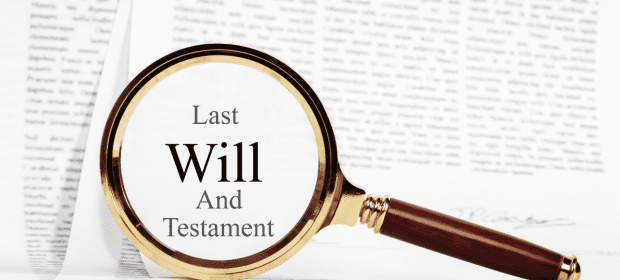
Could the oldest woman in the world have been a fraud?
Not many people will recognise the name Jeanne Calment, but she is the main character of this article and her story invites reflection, regardless of the truth of the various claims made about her.
First, let’s see who Jeanne Calment (probably) was: she was born in Arles, in the south of France, in 1875 and died in 1997 at the age of 122 years, 164 days: this happens to be the oldest age, as far as we know, of any human being ever to have lived. This is clearly remarkable – having been born at a time when the average life expectancy of a French woman was 45 years, she managed to outlive not only her own generation, but also a number of successive ones. It is worth noting that average life expectancy has been influenced greatly by the high rate of infant mortality in the past: in 1875 roughly 18% of babies in France died before their 1st birthdays – today it is less than 0.03% – so once you made it through your first year, your prospects were much better.
Of course, becoming really really old is the sort of thing that might get you into the Guinness Book of World Records, and may provoke a certain amount of interest from medical researchers concentrating on life extension, but how much else of interest can there be in the topic? Well, according to Norris McWhirter, one of the founders of the Guinness World Records (and as reported in the article linked below): “No single subject is more obscured by vanity, deceit, falsehood, and deliberate fraud than the extremes of human longevity.”

It turns out that the case of Jeanne Calment is complicated by the possibility of her not being who she said she was. The accusation of fraud is based upon the idea that she actually died in 1934, the year in which Jeanne’s daughter Yvonne is supposed to have passed away. Jeanne’s family, so it is argued, decided to declare that the daughter had died, with Yvonne then playing the role of her mother Jeanne for the rest of her life. Yvonne was born in 1898, making her death at 99 years old in 1997, if the accusation is true, somewhat less remarkable.
What could possibly have motivated the family’s decision to switch places between mother and daughter? Look no further than those two certainties of life – death and taxes – for the answer. It is clearly quite difficult to cheat death, but as the Calment family was well-to-do, saving an estimated 250,000 francs in inheritance taxes (something close to €1M in today’s money) can’t have seemed like a bad idea. If this is true, then full marks for creativity – we are certainly well beyond the bounds of your average tax evasion scheme! The story gets even better, though, with the decision of Jeanne (or Yvonne?) to sell the life estate of her apartment to her notary in 1969, at the age of 94. The agreement allowed Jeanne to remain in the property and obliged the notary to make regular payments to her until receiving full title upon her death. This sort of agreement, also reasonably common in Italy (the nuda proprietà), is essentially a bet by the buyer on how long the life tenant is going to live for. In this case, Jeanne not only outlived the notary but enjoyed continued payments from his heirs as well, ultimately receiving more than twice the value of the property she sold. Talk about a bad bet!
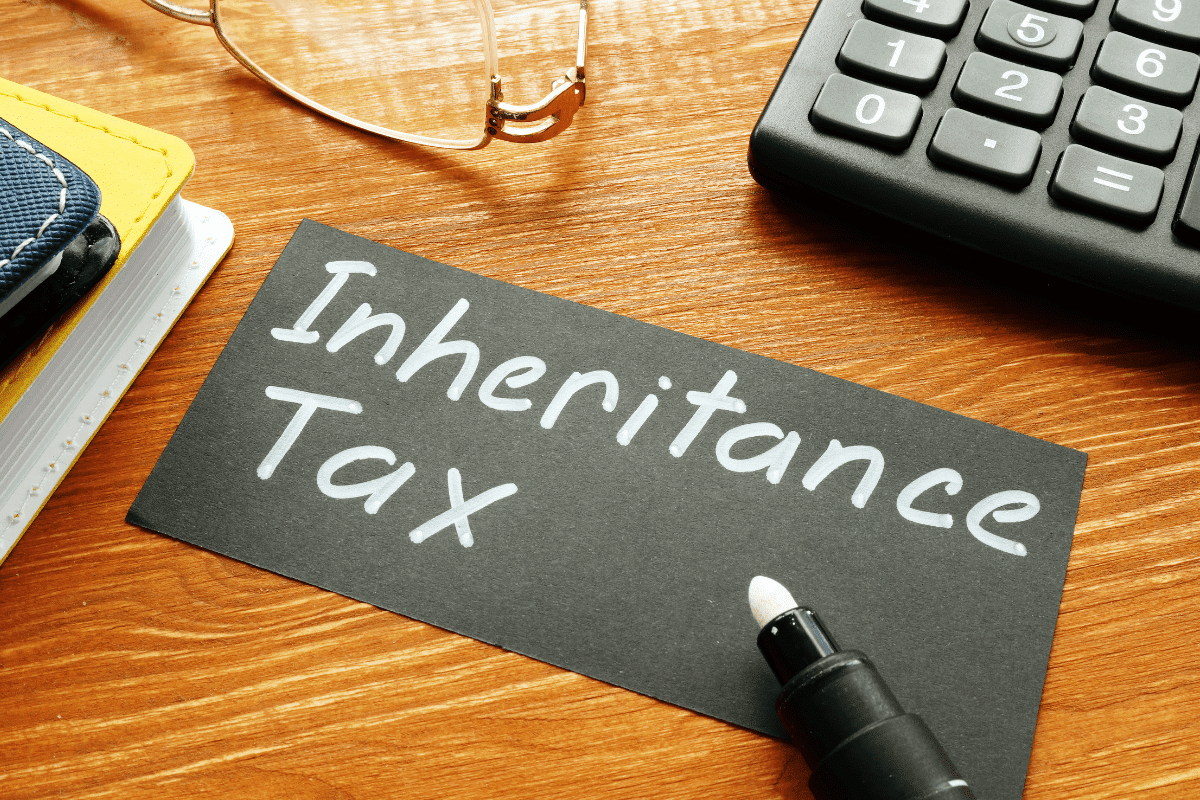
Reflecting on estate planning
What does the above have to teach us? Either that people will go to extreme lengths to save on their taxes, or that they like to dream up good stories on the topic. Certainly we should reflect on estate planning and wonder what might be coming down the line in terms of inheritance taxes in the reforms that will be forthcoming from the Draghi government over the coming months. Currently, assets passing from parent to child are taxed very lightly in Italy compared with other European countries, with a rate of 4% applied on the excess value over €1M per heir. The rates increase to a maximum of 8% with a zero threshold for an heir with no family connection to the deceased, so even in the current worst case scenario taxes are relatively low.* It is worth noting that gifts and inheritances are treated in the same way under Italian law, so it is possible to make a gift up to the threshold limit today without incurring taxes; subsequent amounts inherited would then be subject to the taxes applicable at that time, but a gift now would be made under the current rules that may well become less advantageous in the future. There are various other mechanisms available for efficient estate planning in Italy, the main one being life insurance wrappers: the amounts received by the beneficiary of a life insurance policy are not technically part of the deceased estate, as long as the policy itself is set up in the correct way.
The above constitutes a simple comment on estate planning in the Italian context, but every situation is different and I often engage with clients’ legal counsel to help make sure that the overall plan will work well in the various interested jurisdictions. If you are thinking about reviewing your estate planning in Italy or are considering moving here from abroad, it is never too early to start the discussion – feel free to send me an e-mail and we can organise a time to talk.
Where does this leave us in the case of Jeanne Calment? If you want to read the whole article, which is long but fascinating, the link is here. I won’t spoil the outcome, but I think the journalist’s ultimate conclusion is the right one. I do hope, however, that they never do the DNA testing suggested: the world is better with a bit of mystery every now and again.
* Inheritance taxes may also be due in other jurisdictions depending on the location of your assets and links to other countries.
Investing in China
By Gareth Horsfall
This article is published on: 16th August 2021

Is communism the way forward?
Whilst on holiday, peering out over turquoise bays, ones mind starts to wander and what better route to take than pondering whether communism really has some postive aspects which we, in the capitalist world, would do very well to replicate.
I think my mind has had the space to wander into this rather philosophical space because there has been little to discuss on the Italian tax front (one of my favourite topics). We are waiting for the big announcement on exactly how Mario Draghi intends to overhaul the tax system in Italy and that decision is ‘supposedly’ being announced shortly (but will likely take longer than expected, as is always the case in Italy!). As soon as I know anything I will let you know.
So to continue my thought wanderings I thought we should talk about China.
But before I get into the detail, I want to write about a conversation I had with some clients (who shall remain nameless), who took a long trip along the old Silk Road some years ago. They had been amazed at the development they had seen along the old route, and that it had mainly been funded by China. They also travelled in China itself and commented on the magnificence of its technological and infrastructure progress. These clients, who I would say could easily be classified as socialists and defenders of free speech, said that given what they had seen and the speed at which China can just ‘get on and do things without arguing about it’ does make you wonder ‘if there is some merit to their form of communism’.
And with that thought in mind, this E-zine will explore some of those aspects of Chinese governance. This E-zine was inspired by a blog post I recently read from an asset manager called David Coombes at Rathbones Asset Management (a collaborative partner to The Spectrum IFA Group). His blog puts some recent issues surrounding China’s political decisions in a new and interesting light.

So what is happening in China?
Late 2020, Chinese regulators stepped in and forced Ant Group, a digital payments spin-off from ecommerce giant Alibaba, to abandon its stock market listing on the Shanghai exchange. More recently ride-sharing app Didi Chuxing was pulled from Chinese app stores days after it brushed aside regulatory concerns about data security to list on the stockmarket in New York. In addition, the Chinese authorities have levied a record $2.8 billion fine on Alibaba for anti-trust violations, and regulators are investigating food delivery app Meituan and internet and gaming conglomerate Tencent for the same issues.
Not only are they attacking the tech industry but the government, in an overnight decision, seemingly abolished ‘for-profit’ education in core subjects for kids up to 15 years old, sending an entire private education industry into complete chaos.
Many investors are concerned about a wider crackdown across multiple industries.

The way of the Dragon!
Before we become too shocked by how the Western media portray decisions by the Chinese government, it is a good idea to look at the problems from a Chinese perspective rather than only through our Western lens. China, in much the same way as the West, is struggling with the tremendous power that Chinese online giants now wield over various sections of society. They have created a kind of ‘winner-takes-all’ online marketplace in technology and data. Equally Chinese families are now have to pay increasingly large fees to send their children to school to get even a half decent education.
Does all this sound too familiar?
If so, let me ask you a few questions:
* Do you think that big tech firms( Amazon, Google, Facebook, Apple etc) play a much too important role in our lives and do you think they should be more heavily regulated in the way they keep and use our data?
* Do you think that big tech firms should pay more tax?
* Do you know anyone with kids who is paying a fortune for private education? From supplementary English, sports or music lessons and /or having to pay a small fortune in nursery costs to secure a place in a good nursery school for their kids?

Technology
I don’t know many people these days who can easily defend the growing, and rather worrying power of the tech companies in and on our societies. I, personally, am concerned about the use of data, the power of their lobbying and their continued ‘legal’ tax avoidance (Amazon paid an effective tax rate of 1.2% in 2020 when their marketplace exploded with Covid stay at home policies, which drove even more people to online shopping!). Yet, in many ways we are slave to these beasts. I couldn’t run a business without them, and they do make life much easier.
Education
The Chinese authorities felt that competition in education was putting too much pressure on children and creating a financial drain on parents that is possibly slowing the birth rate and affecting property prices. This was putting children of less wealthy parents at a huge disadvantage. Sounds oh so familiar! Some ‘3 year old’ Chinese children were receiving extra tuition to prep for entry exams to get a place in kindergarten. The Chinese government says this was having a negative impact on the social cohesion of the country. As a father, I think I have to agree!
China does what the West keeps talking about
Could it be that China have looked at the Western model and decided it would like to introduce more regulation to benefit families and the populous, instead of corporations? Given they are named the ‘Central People’s Government’ one might be forgiven for thinking that they are looking at putting people first and corporate expansion second. Wouldn’t it be nice if our own governments could do the same?
Do you prefer democracy or dictatorship?
The truth of the matter is that Chinese leaders don’t pull any punches when they want to implement new policy. They don’t need to put it to a public vote; they can do it overnight. This means that businesses, small and large, suffer hugely as a result. I would be very worried as a father, contributor to the family purse and businessman if the Italian government had the power to introduce legislation which effectively put me out of business overnight.
So, what do I prefer: democracy or dictatorship? In all honesty, I think I am a middle-ground man. I don’t think either work well. I think I would probably choose to compare socialism versus capitalism as economic models and once again, I don’t think either work well in the extreme. I think that we live in an advanced capitalist society in the West which should be reigned in through more regulation in these new and influential sectors. What is perpetually annoying is that I work in financial services which is one of the most heavily regulated businesses and yet we have the big tech firms, the new world of ‘influencers’ and the online world which is largely unregulated and can operate in whichever way it pleases. Maybe China has got it right and they are trying to create a more socially cohesive society.
So should you still invest in China?
You could actually think of the Chinese Government intervention as ethically responsible politics. It is focussing on inequality and trying to improve society as a whole. If you look at it through that lens, then Chinese investment starts to look quite appealing.
That being said, it would be foolish to say that this doesn’t come with some inherent underlying risks. Which industries / sectors might they attack next? And what about corruption, unquestionable power, individual rights etc? That is why it is important that when allocating a part of your portfolio to China, you must be precise – you can’t just buy a Chinese market tracker and expect explosive returns. It is a large market, but one that is still maturing. Company governance is going to have to improve from here or authorities won’t just fine you, they will close you down (or your whole industry!).
So whatever Western media might have us believe, it might just be that this inequality / social-pact shake-up is a sign that China might be a better place to invest over the next decade. And whilst we always advise caution when investing, in line with your own risk profile and using well established, competent asset managers, I would expect to see some allocation to China in almost everyone’s portfolio.
And on that note, it just leaves me to wish you a Buon ferragosto and I hope you manage to stay cool in the ‘Lucifero’ African anticyclone currently covering the country. Keep your anguria close at hand! As I write this E-zine, I notice that the hottest ever recorded temperature in Europe has been set in Siciliy at 48.8 degrees Celcius! PHEW!
As always, if you have any questions about this E-zine, or would like to contact me about your financial and/or tax planning needs in Italy, then feel free to get in touch on gareth.horsfall@spectrum-ifa.com or on cell +39 333 649 2356.
The cryptocurrency revolution
By Andrew Lawford
This article is published on: 29th July 2021

Hodling and the cryptocurrency revolution
Are you hodling? No, that’s not a typo – it is millennial-speak for what you do if you are a true believer in the cryptocurrency revolution. Look it up. I wouldn’t describe myself as old, but I’m certainly old enough not to be automatically in tune with what motivates millennials. However, you can hardly open a newspaper these days without some notable individual passing comment on cryptocurrencies, and they even seem to be going mainstream now that bitcoin has been made legal tender in El Salvador – you can buy residency there for 3 bitcoin. It seemed therefore like a good moment to try and get at least a vague understanding of what cryptocurrencies are, as I suspect that many of the readers of this newsletter will be as confused as I am on the topic, so let’s see what we can discover. I will be focussing particularly on bitcoin, as the main example of a cryptocurrency, but do be aware that bitcoin is only the most prominent out of the estimated 10,000+ cryptos out there.
Everything you don’t know about money, combined with everything you don’t know about technology
This was a tongue-in-cheek definition of cryptocurrencies that I heard not so long ago from an asset manager, but it kept coming back to me every time I saw cryptos mentioned in the press.
Once upon a time, “money” essentially meant some amount of precious metal, generally in the form of a coin which was easily recognisable. Then we evolved to a situation in which we used banknotes to represent an underlying amount of precious metal, and finally we arrived at where we are today, where any link with precious metals has been definitively severed in favour of fractional reserve banking and “fiat” currency controlled by sovereign states – the “fiat” is Latin, meaning “let it be done”, and is the essential expression of our concept of legal tender: something is money not because it has any intrinsic value, but because the law says it is. These fiat currencies rely on trust in the good economic management of the issuing countries, and we can all think of notable examples of where bad management has left fiat currencies broken. I have a 100 trillion dollar note issued by the Reserve Bank of Zimbabwe in my office as a reminder of the importance of sound currencies.

Not many of us could properly explain a fiat currency system and the interactions between bank deposits, bank lending and central bank reserves and, as a result, many find it tempting to say that even major currencies like the US dollar and the euro have little intrinsic value due to the fact that their supply is essentially unlimited. To a certain extent, cryptocurrencies were born out of a lack of trust in fiat currencies (even the “good” ones) and the desire to make money something more regulated (not in the sense of having more government oversight, but rather of wanting precise rules and limitations on the amounts of currency in circulation). In order to be worth something, so the reasoning goes, the supply must be limited and it must be difficult to create – hence the parallels that are sometimes drawn between cryptocurrencies and precious metals.
A lump of gold sitting in a vault somewhere has value simply because we think it has value; up until the time that you find a practical use for that gold, its value is dictated by that vague idea that come (almost) what may, at least it will always be there. Not an amazingly intelligent argument, it must be said, but better than many things that finance has come up with over the years. The basic reason for abandoning the link between money and precious metals was that the supply of commodities like gold or silver were subject to vagaries that had little to do with the overall economic situation, so bullion failed to keep up with our economic growth.

As far as bitcoin is concerned, it is very clear that scarcity is central to its functioning given that it has been set up to have a maximum number of 21 million units. As of today, there are roughly 18.7 million bitcoins that have been created, but the number effectively available for transactions is much lower, due to the fact that many people hodl, and also due to the fact that a large number of coins have been lost (I have read estimates of 20% of the total in existence). You see, if you have a bitcoin, you better make sure you keep hold of the codes that allow you to access it, because there is no “lost password” function if you don’t. Losing the codes is the digital equivalent of throwing your gold bars into the Mariana Trench; they don’t cease to exist, but you will find it all but impossible to recover them. It is worth noting that whilst the scarcity value of bitcoin may be beyond doubt, the fact there are so many other cryptocurrencies around should give pause for thought about the scarcity of the category as a whole.
The creation of bitcoin is one of the things that I struggle with the most – it is commonly called “mining”, in an evident attempt to draw a parallel with precious metals, even though the mining in the case of cryptocurrencies is entirely digital. Essentially, they are discovered by computers contributing to the distributed ledger that monitors all bitcoin transactions. The only explanation of bitcoin mining that has made some sense to me so far is to consider it in terms of a triple-entry accounting system: There are two parties who record a transaction and this is then sealed into bitcoin transaction records by a third party that verifies it through its mining activities (and receives a reward for doing so). Mining, in the world of bitcoin, is technically called a “proof of work” and allows a participant in the network to be rewarded by participating in the distributed ledger and crunching the enormously complicated numbers that guarantee the transactions that have been recorded. This ledger, also known as the blockchain, belongs to everyone and no-one, rather like the internet itself, and it exists in order to eliminate the risk of someone being able to spend the same bitcoin twice. No, I don’t really understand it either.
It is also said that bitcoins and their transactions are “immutable” – I suppose to the same extent that precious metals are immutable. But does this really make any sense? Aside from the apparent lack of ability to hack the blockchain today, can we really be confident that in a thousand (or a million!) years bitcoin will still be unhackable and attractive to a sufficiently large community of people? Perhaps this is more of a philosophical question than anything else, but us humans do get wrapped up in the idea that the big issues of today are the big issues for all time. I suspect our distant descendants, assuming the human race is lucky enough to survive, will become interested in many things beyond bitcoin or cryptocurrencies in general. In this context, the best parallel to draw is with technological innovation: today, not many people are interested in steam engines or dirigible balloons, once important technological developments, and the same may be true for bitcoin in a few decades. For bitcoin to enjoy any value at all, it is dependent on the bitcoin community continuing to support it through time. It would be highly unwise to think that nothing will ever come to supplant it, because human experience with other technologies suggests that better things are always on the horizon. The same cannot be said for precious metals, which may wax and wane in terms of community interest, but do not depend on community interest for their existence. My gold bar will still be there in a thousand years if it is kept safe, regardless of what people might think about it. What might happen to it over the course of a million years is a question I find rather difficult to ponder, but it’s probably fine for the next few thousand.

In all of this, the real evolution may be arriving shortly, and it is not to be found amongst the many new variations on the bitcoin theme that have come into existence. Many have looked upon cryptocurrencies as a way of thumbing one’s nose at traditional financial structures – no more central banks and traditional bank accounts for me please! Yet the governments of this world are not going to give up the privilege of being able to issue national currency without a fight, and it could be that they will try to beat the cryptos at their own game. Some cryptos, known as “stablecoins” are backed by a given fiat currency, but it has been suggested that the most appropriate issuers of such coins are the central banks themselves. One idea is that each of us could end up, as of right, with our own account at the central bank of the nation we live in. If this were to happen, then bank runs would no longer be an issue and commercial banks would have to reinvent their business models, at least in part. Presumably physical cash would become a thing of the past. This is not speculation on my part – the ECB is publicly discussing the benefits of digital coins and the Bank for International Settlements – the central banks’ central bank – has even commented that this is “a concept whose time has come.” The full BIS report is available here for anyone who is interested.
Much has also been said about the potential of the blockchain – essentially the network that runs bitcoin – to revolutionise everything from banking to contracts. We’ll just have to wait and see how all of that shakes out, but it is clear that there are numerous technologies being developed and brought to bear on finance and commerce and it’s by no means clear that blockchain technology is the only answer. In any case, even if the blockchain network is valuable, this says nothing about whether any given cryptocurrency that relies on it has value.
As I suppose must be obvious by now, my research for this article hasn’t convinced me that cryptocurrencies are a good place to speculate (please let’s not use the term “investment” in this context!) – and certainly I see no reason why investment in this sort of asset should supplant traditional assets in an investment portfolio. As boring as it may sound, what really counts in investment is not jumping on that latest bandwagon, but planning one’s affairs properly whilst having a disciplined approach and a long-term view.
As a final point, for any Italian residents, please also be aware that bitcoin investments and gains deriving therefrom are subject to declarations and taxation in Italy – you may think your cryptos are 100% anonymous, but I wouldn’t be betting on it.
The tax and legal systems in France
By Amanda Johnson
This article is published on: 23rd July 2021

There are lots of reasons to love France …
… but the legal and tax systems aren’t high on that list!
How to manage wealth effectively, whilst minimizing administration, requires an experienced adviser with access to solutions purposefully built for the French marketplace, with due regard for t he local taxation and legal systems.
Because knowledge allows us to make better decisions, we invite you to watch the recent webinar with Quilter International.
The webinar considers financial planning options designed to help you keep more of your wealth for longer, ever mindful of the crossover with other countries, such as the UK.
As one of the leading providers of wealth management solutions, Quilter International works primarily with expatriates in around 40 countries, including France. Their speaker, David Denton, is a Fellow of the Personal Finance Society and Trust and Estate Practitioner, and has spent almost three decades in wealth management, training professional and lay audiences world-wide, on the subject of wealth preservation.


